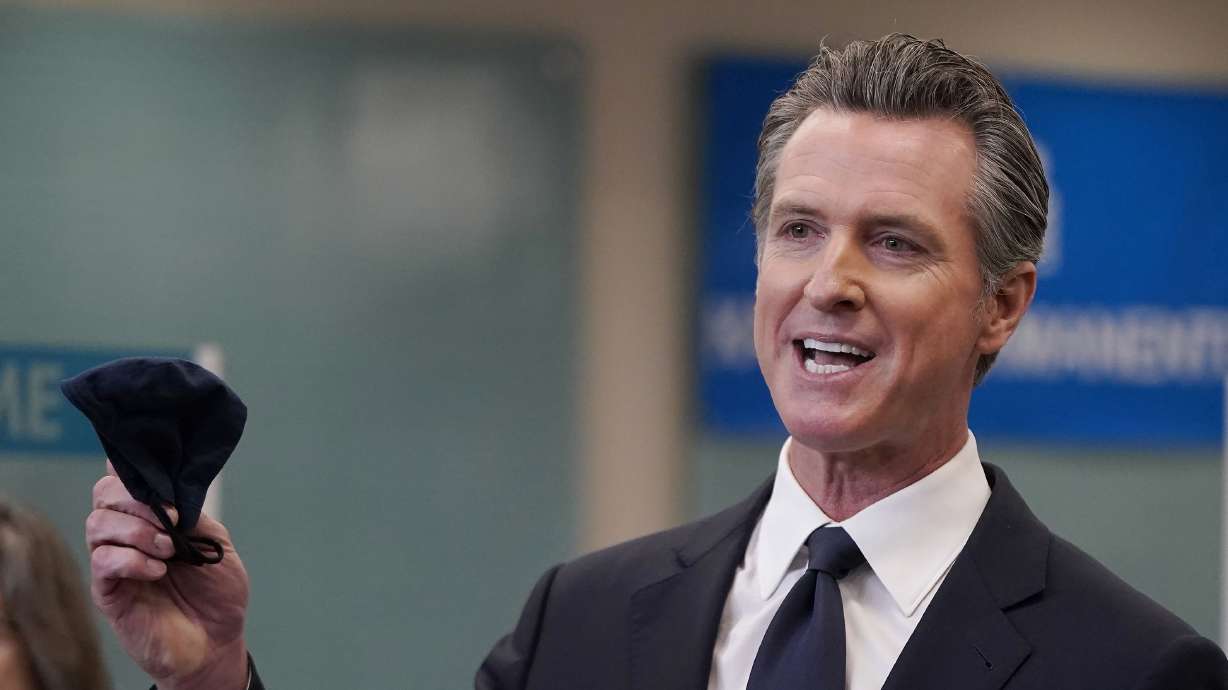Estimated read time: 3-4 minutes
This archived news story is available only for your personal, non-commercial use. Information in the story may be outdated or superseded by additional information. Reading or replaying the story in its archived form does not constitute a republication of the story.
SALT LAKE CITY — Doctors in California who spread misinformation about COVID-19 to their patients now face losing their license to practice medicine.
A controversial bill signed into law Friday by California Gov. Gavin Newsom is believed to be the first in the nation to punish doctors for giving patients false or misleading information about COVID-19 risks, vaccinations and treatments.
Under the new law, the Medical Board of California would determine if a doctor's interactions with patients should be considered unprofessional conduct and, if so, what action is appropriate. Doctors could have their medical licenses suspended or even taken away.
Newsom told lawmakers he decided to sign the bill they passed in August "because it is narrowly tailored to apply only to those egregious instances in which a licensee is acting with malicious intent or clearly deviating from the required standard of care while interacting directly with a patient under their care."
The bill, he pointed out, "does not apply to any speech outside of discussions directly related to COVID-19 treatment within a direct physician patient relationship," such as social media posts or other public statements made by doctors.
California's governor acknowledged he is "concerned about the chilling effect other potential laws may have on physicians and surgeons who need to be able to effectively talk to their patients about the risks and benefits of treatments for a disease that appeared in just the last few years."
But Newsom also said he is "confident that discussing emerging ideas or treatments including the subsequent risks and benefits does not constitute misinformation or disinformation under this bill's criteria," noting that COVID-19 care "is rapidly evolving."
The new law includes a warning: "The spread of misinformation and disinformation about COVID-19 vaccines has weakened public confidence and placed lives at serious risk," and states that doctors have "a duty to provide their patients with accurate, science-based information."
It comes as other states have considered or passed bills restricting the ability of state medical boards "to discipline doctors who advocate for or prescribe ivermectin or hydroxychloroquine for COVID," such as North Dakota, Tennessee, and Missouri, Dr. Nick Sawyer, an emergency room doctor in Sacramento, told MedPage Today.
Sawyer, the executive director of the group No License for Disinformation that aims to ensure that physicians who spread COVID-19 disinformation are held accountable, urged Newsom to sign the bill but is skeptical the new law will result in any disciplinary action against physicians, MedPage Today reported.
The doctor said the group is "pleased to see the California Legislature and Gov. Gavin Newsom continue to stand up for science, particularly in an era so overwhelmed with COVID-related conspiracy theories and outright lies from licensed doctors across the nation."
Opponents of the new law include Dr. Leana Wen of George Washington University, a former Baltimore health commissioner, who recently wrote in the Washington Post that "while well-intentioned, this legislation will have a chilling effect on medical practice, with widespread repercussions that could paradoxically worsen patient care."









